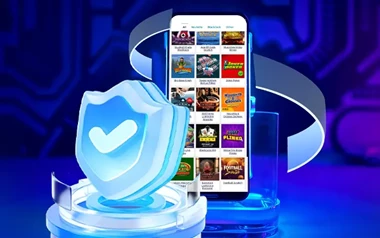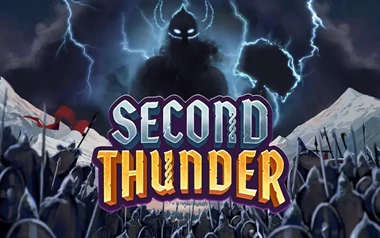Responsible gambling is no longer an optional extra for online casinos. It is a vital part of running a legitimate, ethical, and sustainable gaming platform. For the best online casino sites, responsible gambling tools are not just about compliance with regulations but also about ensuring the safety and wellbeing of players. By putting player protection at the heart of their operations, casino operators can build trust, encourage long-term engagement, and demonstrate genuine care for their customers.
The Importance of Responsible Gambling in the Digital Age
The rapid growth of online gambling has transformed the way people play. With thousands of games accessible on mobile devices, players can now enjoy casino entertainment at any time and from anywhere. While this convenience has boosted the industry, it has also introduced new risks, including problem gambling and financial harm.
The best online casino sites recognise that their success depends on keeping gambling enjoyable and sustainable. By providing tools that help players control their time and spending, operators reduce the likelihood of harm while promoting a positive gaming environment.
Regulatory Requirements and Industry Standards
In regulated markets such as the UK, the Gambling Commission enforces strict rules on player protection. Licensed operators are required to offer features such as deposit limits, self-exclusion, and reality checks. Failure to comply can result in significant fines or the loss of a licence.
However, compliance should not be the only driver for adopting responsible gambling tools. The most reputable operators, including those recommended by Gambling Zone, go beyond the minimum legal requirements. They actively invest in advanced technology to monitor player behaviour, identify signs of risk, and intervene when necessary.
Key Responsible Gambling Tools Every Casino Should Offer
1. Deposit and Loss Limits
Allowing players to set daily, weekly, or monthly limits on how much they deposit or lose is one of the most effective harm-prevention measures. These limits help players stick to their budgets and prevent overspending during intense gaming sessions.
2. Time-Outs and Self-Exclusion
Time-out features give players the ability to take short breaks, while self-exclusion allows them to block access to their accounts for extended periods. Both are essential for players who feel their gambling habits are becoming unhealthy.
3. Reality Checks and Session Timers
These features remind players how long they have been playing and how much they have spent. Simple prompts can help players make conscious decisions about continuing or taking a break.
4. Behavioural Monitoring and Early Intervention
Some operators now use AI-driven systems to detect risky gambling patterns. When unusual activity is detected, the system can trigger warnings, offer support resources, or temporarily restrict access to certain features.
5. Links to Support Services
Providing direct links to professional organisations such as GamCare ensures that players have immediate access to help if they need it.
The Business Benefits of Responsible Gambling Tools
It might seem counterintuitive for a casino to encourage players to limit their gambling, but the reality is quite the opposite. Operators who prioritise player protection often enjoy stronger brand loyalty and a better public image.
When players trust a platform, they are more likely to return and recommend it to others. The best online casino sites understand that sustainable growth comes from keeping customers happy, safe, and confident in the fairness of the platform.
Building Trust in a Competitive Market
Online gambling is a crowded space, and competition among operators is fierce. In such an environment, reputation is everything. A single negative news story about irresponsible practices can cause lasting damage to a brand.
By making responsible gambling a core part of their identity, casino sites can stand out from the competition. This is not just about ticking boxes on a compliance checklist but about demonstrating genuine care for players’ welfare.

Player Education A Crucial Component
Player Education: A Crucial Component
Responsible gambling tools are most effective when players understand how to use them. Leading operators run educational campaigns, providing guides, tutorials, and in-game prompts that explain the purpose of each feature.
By empowering players with knowledge, casinos encourage more informed and mindful gaming habits. This proactive approach reduces the risk of harm while also creating a more positive overall experience.
The Future of Responsible Gambling Technology
As technology advances, responsible gambling tools will become even more sophisticated. We can expect to see increased use of personalised alerts, biometric verification for age and identity checks, and predictive analytics to spot risk before it becomes a problem.
Casinos that invest early in these innovations will not only stay ahead of regulations but also strengthen their relationships with players.
Responsible gambling is the foundation of a safe and enjoyable online gaming environment. For operators, it is an opportunity to prove that they value their players beyond immediate profits. For players, it is a safeguard that ensures their experience remains fun, fair, and free from harm.
By embracing responsible gambling tools, the best online casino sites are not only meeting legal obligations but also creating a sustainable model for long-term success. In an industry built on trust and entertainment, putting player protection first is the smartest bet any operator can make.
The future of the gambling industry will be shaped by those who combine innovation with integrity. Players are becoming more conscious of where and how they play, and they will gravitate towards platforms that show genuine care for their wellbeing. Casinos that actively invest in education, technology, and early intervention will set the gold standard for the industry. Ultimately, responsible gambling is not a hindrance to growth but a catalyst for building stronger, longer-lasting relationships between operators and their customers.







